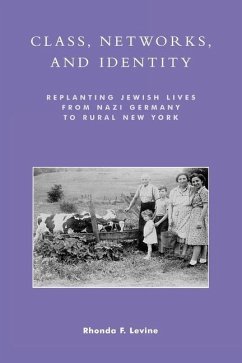This book documents a little-known aspect of the Jewish experience in America. It is a fascinating account of how a group of Jewish refugees from Nazi Germany came to dominate cattle dealing in south central New York and maintain a Jewish identity even while residing in small towns and villages that are overwhelmingly Christian. The book pays particular attention to the unique role played by women in managing the transition to the United States, in helping their husbands accumulate capital, and in recreating a German Jewish community. Yet Levine goes further than her analysis of German Jewish refugees. She also argues that it is possible to explain the situations of other immigrant and ethnic groups using the structure/network/identity framework that arises from this research. According to Levine, situating the lives of immigrants and refugees within the larger context of economic and social change, but without losing sight of the significance of social networks and everyday life, shows how social structure, class, ethnicity, and gender interact to account for immigrant adaptation and mobility.
Hinweis: Dieser Artikel kann nur an eine deutsche Lieferadresse ausgeliefert werden.
Hinweis: Dieser Artikel kann nur an eine deutsche Lieferadresse ausgeliefert werden.








